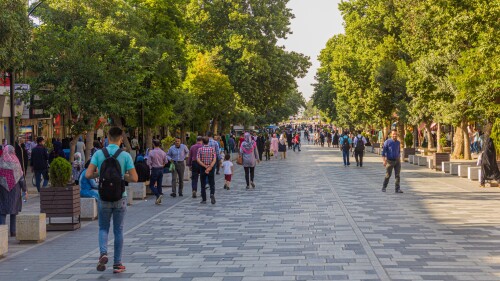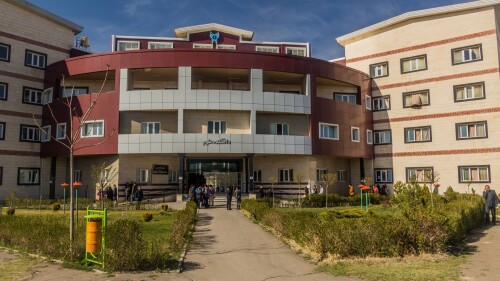On November 4, 2024, Iran executed 20-year-old Arvin Ghahremani, an Iranian Jew, two years after his arrest for fatally stabbing Amir Shokri, an Iranian Muslim. The Iranian court ignored many exculpating factors. Ghahremani argued self-defense. The knife was Shokri’s and Ghahremani said he stabbed Shokri in the scuffle after disarming him.
Deborah Lipstadt, U.S. special envoy for monitoring and combating antisemitism, condemned the process as unfair and said the regime denied Ghahremani even the minimal rights afforded to Muslims.
Ghahremani’s execution should concern the Iranian Jewish community broadly. When I attended high school under the Islamic Republic, my classmates were ethnically diverse, much like Iran itself where only half the population is Persian. One classmate was an Armenian Christian, and he had a very Armenian name—Vahak. This was not unusual for ethnic Armenians in Iran; most Christians have foreign names that stand out.
Contrast this with Arvin, a Persian rather than Jewish name common among Gen Z Iranians. Ghahremani is also Persian, roughly translating to heroic. Ghahremani’s case was more the rule than the exception: Unlike Christians, many Iranian Jews take Persian names. Despite having a target on their backs, Jews traditionally integrate into society more than many Iranian Christians, with Jewish ties to Persia dating back almost three millennia. Put another way, most Iranians interact with both Jews and Christians at some point in their lives, but they may only be aware of the Christians because Christians stand out while Jews integrate even if they do not assimilate. Both of my grandfathers had close Jewish friends who fled after the revolution, and my parents were playmates with their children. Their Jewish playmates had Persian names. My parents “never thought of them as Jews; simply Iranians.”
The exchange of traditions between Persians and Jews is undeniable. So, too, is the unique oppression and surveillance Iranian Jews endure.
Most Persian Jews who emigrated from Iran four and a half decades ago cling to their Persian identity; their children, born in the United States, speak Persian, and they observe Persian holidays. Other Jewish diaspora communities—East European or North African Jews, for example—do not match the attachment Persian Jews have to Iran. Annika Hernroth-Rothstein traveled to several countries, including Iran, to chronicle different Jewish diaspora communities. Yoram Haroonian sought to convince her both that Persian Jews were “unlike any other in the Jewish world,” and that the Jews of Iran conform ideologically to the regime in a speech she commented seemed a bit too well-rehearsed, but his argument about the exchange of traditions between Persians and Jews is undeniable. So, too, is the unique oppression and surveillance Iranian Jews endure.
Ghahremani’s execution was one of at least 166 in a month amidst tensions between Iran and Israel, the highest in two decades, but its uniqueness suggests deterrence. The fates of over 10,000 Iranian Jews likely concern Jerusalem. While the Iranian judiciary had confirmed Ghahremani’s sentence for months, his sudden execution was a signal to Israel that the regime will not hesitate to retaliate against Iranian Jews, effectively holding every Iranian Jew hostage.
Iranian leaders often seek plausible deniability, and so likely will not act against the Iranian Jewish community directly but rather will greenlight mobs, the same modus operandi with which they have attacked embassies.
The regime prevents Iranian Jews from leaving Iran; only one member of a family is able to acquire an exit visa at a time, to hold the rest of the family hostage in case they do not return. If Iran decides to crack down on Iranian Jews, it might become necessary for an evacuation that mirrors the flight of Yemeni or Ethiopian Jews decades ago.
Iranian Jews inside the country may be too intimidated to say directly, but their community is now more endangered than ever. All countries that value human rights and liberalism need to communicate the cost of persecuting Jews to Iran. Some might act with sanctions; those with capability should begin contingency planning for operations to fly Jews out or dissuade by force those who would do them harm.







